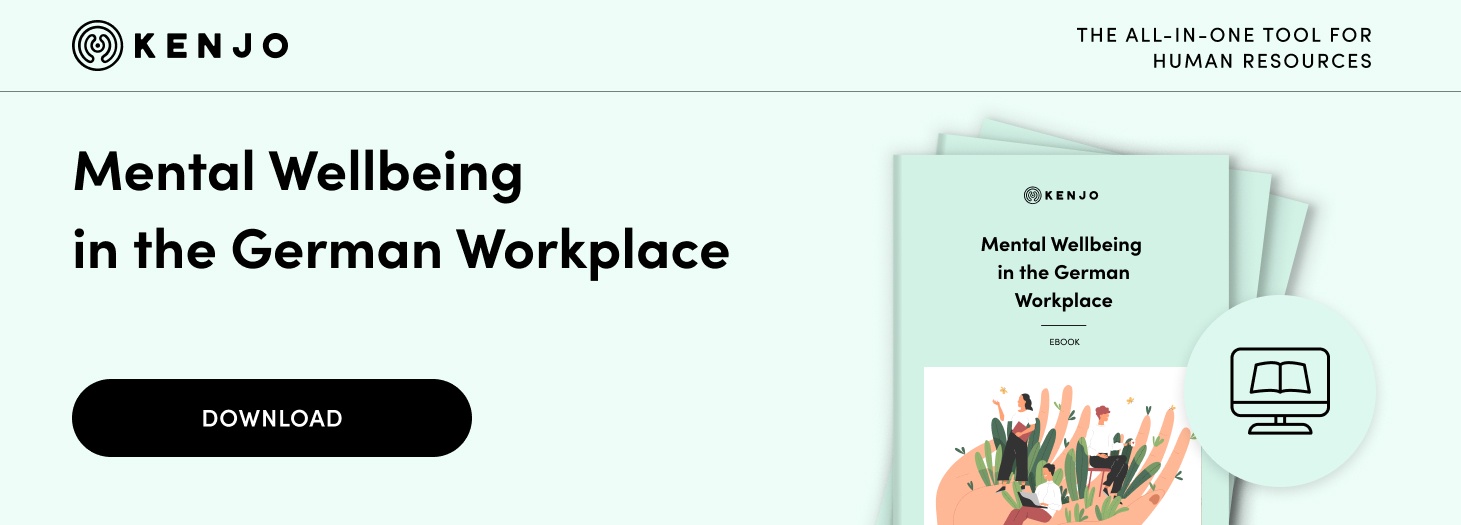How can HR care for their employees’ mental health?

Interview with Rafael San Román, Psychologist and Content Manager at ifeel
The outbreak of the pandemic has clearly had consequences for the emotional wellbeing of the population. In fact, a UK study reported that the proportion of adults reporting psychological distress increased from 20.8% in 2019 to 29.5% in April 2020.
It has also impacted considerably on employees, as shown by our study ‘Mental Wellbeing in the workplace’. This study found that the mental health of 52% of workers has deteriorated due to the pandemic and that 60% admit to having higher levels of stress and anxiety.
In this interview, Rafael San Román, Psychologist, Content and PR Manager at ifeel, an emotional wellbeing platform for companies, explains how HR departments can address problems relating to their employees’ emotional wellbeing, provide a positive work setting and the benefits of online therapy.
How important is it to highlight problems related to mental health and emotional wellbeing in the work environment?
They say that if you can’t see it, it doesn’t exist. The same goes for mental health in the work environment: if we don’t highlight the consequences for people and businesses, there is no need to think about their causes, or how to prevent or address them.
However, when we ask people, we find that more than 50% of workers admit their mental health has suffered since the start of the pandemic and the majority of them work in companies that don’t offer any type of support for this. It is imperative, on a corporate and ethical level, to underline the fact that work influences the emotional wellbeing of workers. This helps to ‘humanise’ companies, normalising the view, which is already normal outside of work, that the employee is a human being with vulnerabilities that need to be cared for.
Why is it taboo to talk about these types of problems?
There is a distorted view that mental health problems are associated with “madness”, someone who loses touch with reality and can’t function like a “normal” person. Nobody wants to be labelled “mad”, “fragile” or “sick”, and even less so in the work environment. Sometimes we forget that mental health problems are not always serious disorders.
A higher level of stress or anxiety, or feeling demoralised or intensely bored, can also cause a slump in the emotional wellbeing of employees. These may be less visible, but can deteriorate if they are not addressed.
What factors have caused employee mental health to suffer since the start of the pandemic?
Lots. We talk about these consequences as if they were a homogenous entity, but there are many different aspects that have interfered with employee mental health. Falling ill, losing your job or fearing you may lose it, especially if you have family responsibilities, amid the terrifying context of an economic crisis, have been big stress factors for many workers.
Also, living in close quarters during lockdowns, extreme loneliness, as well as the difficulty of separating work and personal lives through poorly organised remote working are also factors to bear in mind.
More interesting blog posts on mental health on our blog:
-
Supporting mental health in the workplace and the link to meaningful work
-
A mental health policy for the workplace - Why your organisation needs one
What kind of help or benefits can companies offer to care for their employees’ health and emotional wellbeing?
The first step is to include the psychological wellbeing of employees in the organisational culture and reflect this in concrete strategies. For example, with specific emotional wellbeing programmes for companies designed by professional psychologists, like the ones offered by ifeel. It is a little complex, but ultimately can be summarised with a very simple principle: everything that makes life easier for the worker, instead of complicating it unnecessarily, is an excellent starting point.
Similarly, to decide how to help employees, we need to identify their needs, and for this, we have to listen to them. They are good informants and the first to be interested in being looked after.
I would highlight the following aspects that can benefit from these measures:
- Financial: people who feel badly paid become demotivated, lose engagement and leave.
- Emotional: there must be a positive, trusting, cooperative and understanding environment.
- Flexibility: there should be hybrid measures, for example relating to time management: flexible hours, number of holidays. People want to have a life and the main enemy to that is presenteeism due to strict time controls.
What can companies do to provide a positive work environment in which employees feel secure and motivated?
Take seriously the influence that employees’ mental health has on business results, for better or worse. It is important to understand that the wellbeing of workers is not just an absence of problems (they don’t have any reason to complain, no one is off sick with depression, no one is showing signs of fatigue or psychological stress).
That is correct, and is a minimum to aspire to, but mental health has to go much further. It also involves employees feeling well (not euphoric, but content, yes), valued, protected and understood by the business structure they belong to.
The feeling of security is the opposite of seeing the workplace as a space that doesn't take our vulnerabilities into account, that does not understand that we have aspects of our lives outside work that also need our time and energy. The company should demonstrate to its employees that it doesn’t think of them as machines, and is conscious that they have their own pace, needs and particular characteristics and should adapt to them wherever possible.
What advantages are there to having a workplace wellbeing programme?
Investing in workplace wellbeing programmes generates a trusting environment and a positive link with the company; a fair exchange between both sides, that encourages the employee to get involved beyond what is strictly necessary and, therefore, improves their performance.
How can HR and team leaders help an employee who is experiencing a period of anxiety, stress, or emotional instability?
Listen and observe a lot, without prejudgement. Try to see what has happened for the person to get to this point, clarifying which aspects have to do with the work dynamic and which relate to other elements. To do this you will need to investigate respectfully and empathetically, demonstrating your availability, validating the employee’s trust in expressing their emotions, trying to understand how the person interprets their situation and helping them to jointly establish possible solutions.
If there is any kind of justification for the employee feeling that way, the HR manager or person in charge of looking after this matter should see the situation as a wake up call, especially if they are this person’s direct supervisor. They should think about what has gone wrong in the work methodology (if something has gone wrong) and what lessons can be learnt from the event to improve team organisation in the future.
What benefits does ifeel’s emotional wellbeing programme bring to companies?
Ifeel is a unique emotional wellbeing programme for companies, designed by its team of psychologists to help businesses put employee health at the centre of their development strategy for sustainable productivity.
Thanks to this collaboration, HR managers can receive personalised, data-driven advice on how to properly manage the psychological needs of their teams and help them to be more efficient, at the same time as reinforcing their psychological wellbeing.
On the other hand, the programme offers employees a holistic mental health care service structured on different levels according to their objectives. This service includes, if they need it, online psychological therapy with a psychologist specialised in such cases.
About Rafael San Román
Rafael San Román is a Psychologist and Content and PR Manager at ifeel, where he works on matters relating to corporate development. He also has a long career history as a therapist specialising in bereavement counselling, gender diversity and people with HIV.

